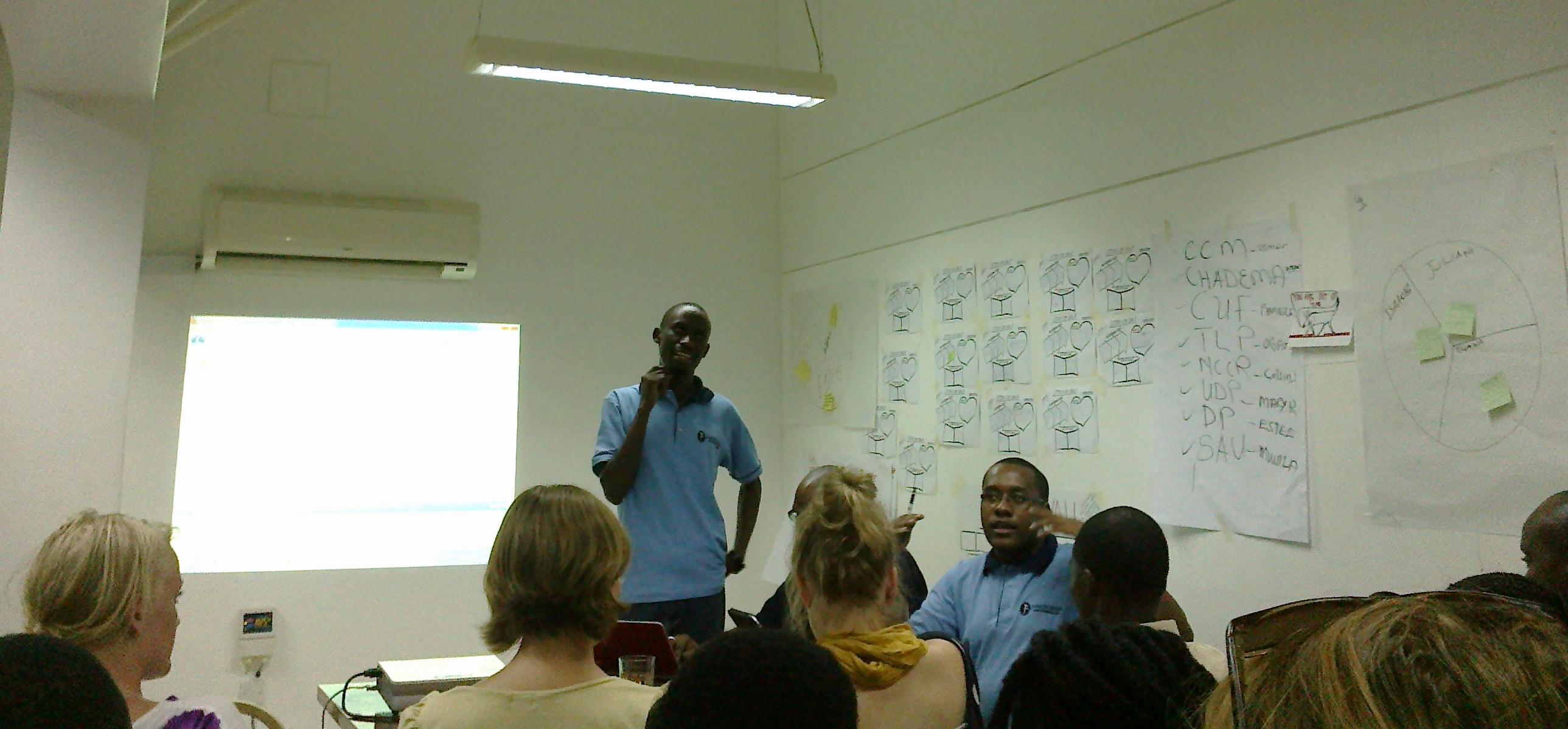
It is a Tuesday4Change evening, a series of iconic monthly events run by the Global Platform Tanzania under the auspices of the Danish international cooperative agency, Action Aid. A few weeks ago Tuesday4Change had Rakesh Rajani speaking on the North African revolutions and pondering whether such socio-political changes could happen in this corner of Africa.
It’s 8 pm, and the room is packed with local and Danish youths all attention focused to the three activists who run the online discussion portal Jamii Forums (JF): Islam, Max and Mike. Most of the four walls in the venue are decorated with posters and wallpapers inscribed with mottos and statements on leadership, social entrepreneurship, activism, accountability and similar themes that would easily have you fired-up. The scenery aptly captures what the subsequent hour and a half is all about.
The ‘JF-guys’ are delivering a presentation about their work through a theme titled ‘Social Media as a Political Tool’. Their talk takes us through JF’s trajectory, from the days when it was simply an online society for discussing Tanzania’s economy, to JamboForums, and up to its current status as Tanzania’s most popular website. During the talk we are told about a catalogue of scandals involving the government of Tanzania that were made public through JF — the blow-up of the External Payment Arrears account (EPA) scandal of the Bank of Tanzania; the irregularities in the investment contract of the Buzwagi gold mine; the leakage of documents related with the recent DOWANS saga, amongst other things.

The JF-guys insist that they are not the source of the confidential documents published in their site, nor do they know or keep track of the whistle-blowers. What they maintain is that all leaked documents are from fellow Tanzanians with access but who want to publicize any wrong-doings in the government, its institutions and society. It’s is unfortunate that two of the JF-guys had to spend a week in detention a few years ago to make this point clear. They also insist that the political component is only a fraction of what makes JF, and that discussions in sports, culture, science and business also feature in and are popular in their website. However, everything these days is politicized.
Currently, JF has over 34,500 members and it is not uncommon to find 5000 users online per session. There is literary a post published every second during peak-hours and this soaring popularity has also been a challenge in maintaining the site. They are now performing around-the-clock moderation of discussions while funding from donors and members keeps the project afloat.
JF maintains that it is impartial and non-partisan. However, questions regularly asked are about JF’s association to the opposition party CHADEMA, and on who has the final say as to what information should be public or not. The JF-guys vehemently demystify any ties to the opposition party, and state that they are not members of any party, but what drives them is their desire to make a better Tanzania through such a portal. (Active, responsible citizenship?) And on the type of content issue, they state that they always scrutinize the authenticity of confidential documents they receive, and care is always taken on their publishing.
With the success of JF and other social media forms, where the user is flooded with information from various sources, I believe moderation of content should also be sensitized at the user-end. The Tanzanian audience has this challenge. The format of many of these media platforms is that of fast-paced, concise or of real-time discussion. While this may be convenient to many, it is also limiting to the majority of Tanzania’s internet users who may lack the resources to cross-check or even follow-up on sensitive published content.
We have seen many scandals publicized through these platforms. However, are there any long-lasting spill-over effects at social level that we can show for? This is the challenge the social media platforms of Tanzania have to start addressing and perhaps what the Tanzanian public ought to be sensitized about.
Up-coming events on the Tuesday4Change series:
- April 12th — “Problems in Dar” exhibition
- May 3rd — Music as a medium for social change
- Join the Global Platform Tanzania Facebook page


The question the author asks – “Are there any long-lasting spill-over effects at social level that we can show for?” – is an important one.
It’s one thing to discuss a problem from all angles, but it’s another to do something to solve the problem. “Doing something” would mean getting your hands dirty in the issue, as opposed to just sharing it on Facebook, Twitter, et al.
But I would also go further and ask who is the “who” in all this? If one institution has put themselves out to be a MEDIA house, is it in their objectives to do anything about a problem? Perhaps the definition of a media house is changing. But whether it is changing or not, everyone and every group has their/its defined objectives, and sticking to objectives is what is rewarded in the way institutions work today. It is, afterall, a meritocratic world.
The question of who stretches further: For those that are supposed to be doing something about a problem, why does it take the media to point out a fault in their actions (or lack thereof) for them to be spurred into action? In other words, why is the media being blamed for giving the wake up call?
So in sum, I want to point out 2 considerations on the question of “long-lasting spill-over effects”:
1. Is media meant to inform people of problems, or to proceed and help solve problems?
2. Without media, are faults able to be announced publicly? Rather, should fault be recognized before the media does?